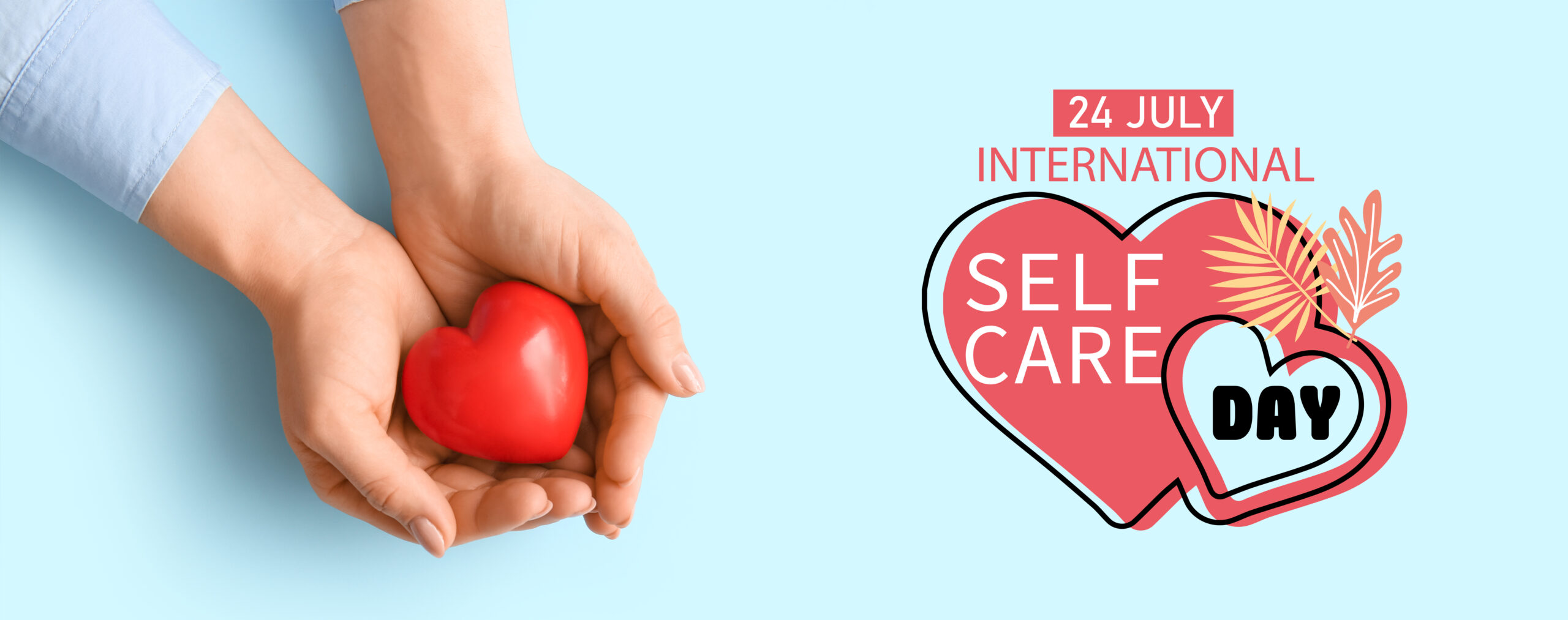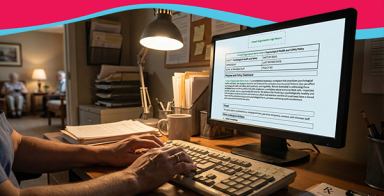What is it?
International Self-Care Day, which lands on July 24, is an opportunity to reflect on how you care for yourself and prioritize your well-being. It is a chance to pause, think about what truly makes you feel your best, and commit to incorporating important pieces of self-care into your daily routine.
We often talk about self-care as being crucial for our mental and physical well-being, but it can be easier said than done. What does it look like in our daily lives? To make self-care more than an occasional activity, we should focus on improving those small, everyday habits that collectively make a significant difference. For caregivers, International Self-Care Day is particularly important. Caregivers are often great at spotting stress in others but might overlook it in themselves - this day serves as a reminder for caregivers to take time for their own needs too.
Healthcare workers, especially those in long-term care and home and community care, face tough challenges. They typically work long hours in high-pressure environments and care for patients with complex needs, which can add up to significant stress and fatigue. The emotional and physical demands of the job can be overwhelming, and they might only have a limited number of resources or support. This continued strain can lead to burnout and affect their well-being through symptoms such as exhaustion, irritability, weakened immune function, and more (Harvard Medical School, 2024, par. 2). Recognizing and addressing these challenges is difficult but pivotal, not only for their health but to continue providing the best care possible.
How can you achieve it?
What does self-care look like? It is all about the little things you add to your daily routine that make a big difference. Whether it is taking a short walk or fitting in your favourite cycling class, self-care can be personalized to fit your needs. So how can we approach it in a well-rounded way? Think about self-care in three principal areas:
- Physical self-care includes activities like exercise through weight training or cardio-intensive workouts, eating balanced meals with fruits, vegetables, and whole grains, and getting a solid 8 hours of sleep each night.
- Mental self-care involves practices such as relaxing through things such as meditation, diving into an enjoyable book, or setting boundaries and learning to say ‘no’.
- Spiritual self-care focuses on spending time in nature through hiking, engaging in spiritual activities that are meaningful to you, or volunteering and helping others.
What role do organizations play?
Organizations can make a substantial difference in employee well-being with these three straightforward self-care strategies:
- Make ergonomics a priority with an open concept space that provides good lighting and quiet spaces to recharge.
- Encourage staff to become familiar with their health insurance and wellness benefits. Prompt them to take full advantage of all the services designed to keep them feeling great.
- Instead of piling on new tasks, get creative and have employees pick one thing they want to stop doing—it is a fun way to change up their routine.
What are the benefits and barriers?
Making self-care a priority has many advantages, including a better work-life balance due to a decrease in burnout, and better overall patient care. You might find that taking care of yourself also helps you become more resilient. Research shows healthcare workers who prioritize their well-being are more effective in caring for their patients because they can manage stress better and maintain their energy levels—this means they can offer more attentive and compassionate care (2023, par. 5).
However, self-care routines may be limited by common hurdles such as feelings of guilt, time constraints, and a lack of resources. To overcome these barriers, challenge them. Start by recognizing that focusing on yourself is not selfish. Next, set aside time for yourself and reach out to those around you. Be open about your struggles and ask for support when you need it.
How do I go forward?
Starting your self-care journey might feel overwhelming, but it is important to begin somewhere. On July 24, take a moment to focus on your well-being. Look at your daily routines and see what is working and what is not. Start with simple steps, like taking breaks during shifts, doing quick exercises, and practicing deep breathing. Be open about your struggles with your team and focus on what you can change.
For more help, visit our psychological self-care support page for useful assessment tools, practical guides, and templates. You can also watch our previous webinars on mental health topics, such as tools for managing stress and burnout or energy health management.











